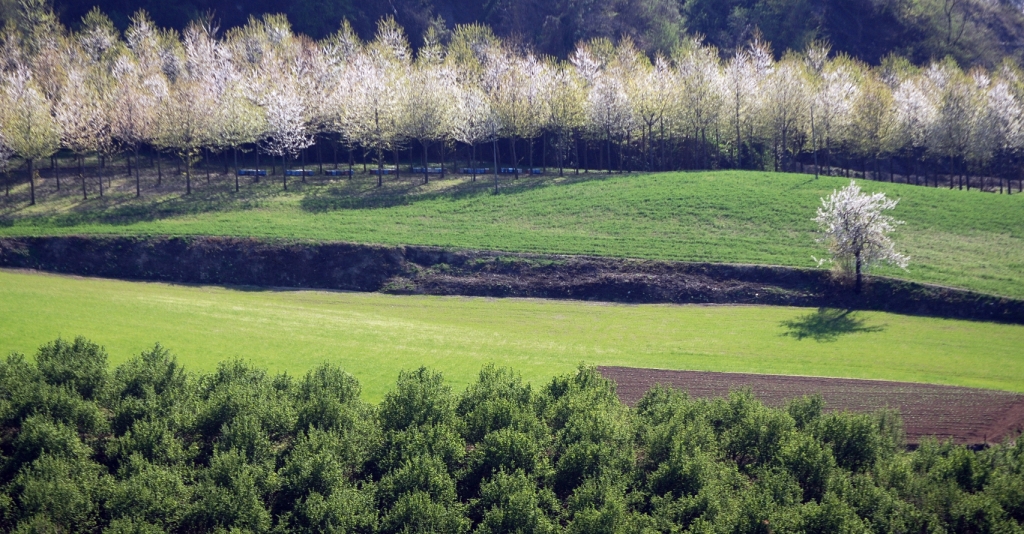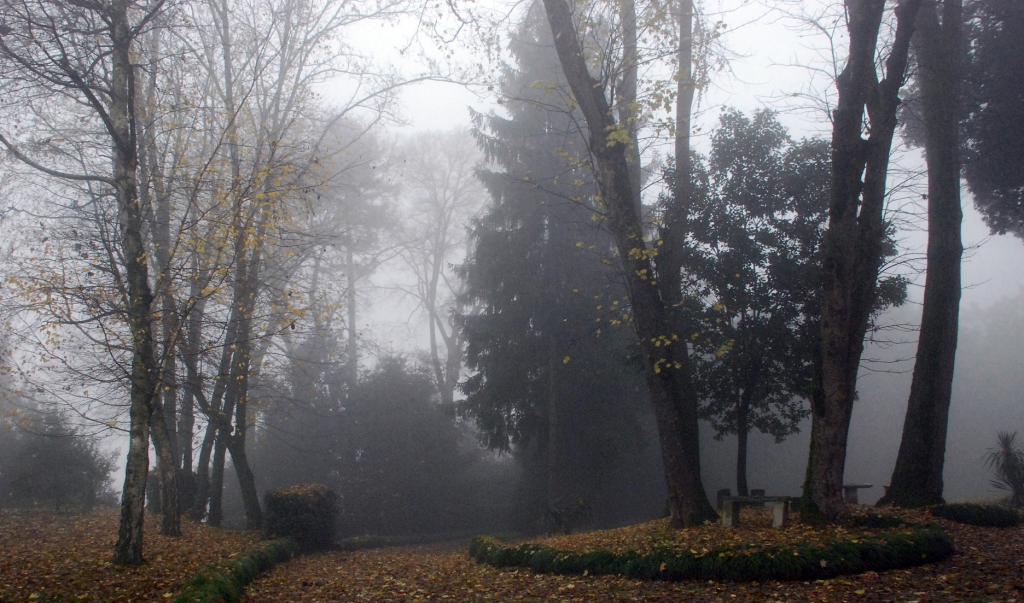RICHARD BERENGARTEN
Twelve propositions
1. The word anthology often means a ‘collection of poems’. This usage blends two ideas: a ‘gathering of flowers’ and a ‘gathering of extracts from writings’.[1] In other words, an anthology is conceived as a kind of beautifully arranged bouquet of words, ideas and concepts. If one dwells on this, the idea that ideas, expressed in language, can have the qualities of flowers (their forms, shapes, colours and perfumes) is itself beautiful.
2. The botanical origin of the word anthology plausibly suggests an appropriate analogical extension and variation: a dendrology.[2] The meaning of this word, which is usually “the study of trees” or “the department of botany which treats of trees”,[3] is extended here to a ‘gathering or collection of tree-poems’.
3. This dendrology advocates, celebrates, defends and upholds the lives and presences of trees and poems. The implicit claim it offers (and now makes explicit) is that in doing just that, it also advocates, celebrates, defends, and upholds the organic diversity of human languages.
4. Languages are comparable to biological species in several distinct but related ways. Each individual language is unique, irreplaceable, special, specific. Like species, languages belong to families: they originate, and assume their shapes and forms mysteriously, both phylogenetically and ontogenetically; they develop, mature, and die; they shift, flit, and get blown about, in, on, and by the wind; they jump ship, train and plane; they migrate; they settle in new locations and find new habitations. Some degenerate and get decimated or exterminated by other stronger languages; some survive against the odds in tough environments; some seem to fade out and then come back to life again; and many in their turn generate new languages. Like species, languages have ancestors and descendants. What is more, inter-relationships within the histories of language families, like those of species, tend to be conceptually modelled and visually mapped on images of trees (for example, Indo-European, Sino-Tibetan, Semitic, Austronesian, etc.).
5. Within any one language, poems, once expressed, are literally irrevocable but not necessarily recoverable. They can blow away on the wind and get lost. Poems belong ineluctably to the particular language in which they were first made. They grow in and from their speakers and writers to their listeners and readers through minds, voices, ears, eyes and hands. Languages in the minds, voices, ears, eyes and hands of their speakers, writers, listeners and readers are poems’ necessary dwelling places. There ultimately exist no other loci for poems to live and flourish in – though in order to survive, they may need to pass (on, over) into a language other than the one they were made in.
6. Poems are not just decorative adornments for a language, prettifying but unnecessary adjuncts, patterns carved or engraved onto its surfaces. Proto-poems, with features such as reduplication, playful modulations of rhyme and assonance, and even simile, are made by small infants babbling in their cribs even as they approach and cross the borders into articulate speech. As Ruth Weir observes: “[T]here are a great number of instances in the child’s monologues where play with the sounds of the language is basic in the hierarchy of language functions, with other functions, be they referential or conative or metalingual, subordinated to it” (emphasis added).[4] The poetic function in language is not accidental, ornamental or artificial, but fundamental.
7. Whether in condensed or elaborated forms, mature poems express and encapsulate the power, delicacy and beauty of their language: they plummet its depths and scale its heights; they test its limits, push its boundaries, and tap its possibly as-yet-unrecognised and unregistered resources. Poems course through all the energetic pathways (meridians) of a language: through its taproot, tubers and rhizomes, along its trunk or main stem, into its boughs, branches, twigs, leaves, and meristematic tips. Poems transmit a language’s spirit, soul, sap: its qi (气).[5]
8. Poems are the finest and purest forms of art that can be made in language. Whether composed and delivered orally or in writing, poems not only affirm and confirm the particular qualities – the unique genius – of the language they are made in, but they protect its life and guard its longevity. And once recorded, poems perpetuate their language; they defend it against its disintegration and death, against its passing into oblivion.
9. In these ways, recorded poems offer a kind of Sicherheit to the language they are made in.[6] They ensure and insure it; and for as long as that language lives, they endow its speakers with some measure of safety and security in inhabiting it, along with a sense of pride and confidence in it: that is, a sense of its stability, endurance, and durability. In all respects, then, poems are good for their language and for its speakers. Shelley said in The Defence of Poetry that “poets are “the unacknowledged legislators of the world.” Let it be added here that, rooted in language, poems are the unacknowledged protectors and guardians of humanity.
10. Poems also enshrine dead languages, and bring something of them back to life again. Long after all its speakers have gone for good, recorded poems can guarantee our memory of a language and of those who once spoke it and lived in and through it. The discovery and decipherment of a poem recorded in a no-longer-spoken language will result in the resurrection of that language’s spirit through the poem’s textual translation into a currently living language. Consider, for example, the literatures of Sumerian, or Old Norse, and the insights we have today into those civilisations through translations of the Norse sagas and the Sumerian creation hymns. What is more, a poem recovered and resurrected from a dead language may turn out to be a masterpiece, like the Epic of Gilgamesh, which lives on in a special kind of glory, despite the fact that no-one any longer speaks Sumerian or even knows for sure what it sounded like. Translated – transplanted – into many modern languages, a masterpiece like this, written over 4700 years ago, lives on; and in doing so, it challenges mortality. Paradoxically, then, poems can survive their own languages.
11. Both globally and in the particulate intimacy of this or that, poems continuously and energetically insist on thrusting life against death, creativity against destruction, and learning, memory and remembrance against ignorance, forgetting and oblivion. Whereas trees give us the oxygen that enables us to breathe, poems that grow from and through us, moving away from us on the wings of breath, also return inspiration to us by moving us. That is to say: in recycling inspiration to us, they re-inspire us. Poems recall us from exile into the radiant fullness of presence now-and-here.
12. A dendrology, a forest of tree-poems, is an emblem and manifestation of this spirit, these re-inspirations.
Cambridge
July 15–18 and August 5–8, 2017
(Photo: Bruna Bonino)
This essay can also be read in a pdf version here: A Dendrology: Twelve Propositions
Related articles:
The Albero Project (Richard Berengarten’s Introduction)
A Forest of Trees (versions in different languages)
Concerning “Tree”: Twelve Propositions
“Tree” by Richard Berengarten (an essay by Stefano Maria Casella)
For more articles on the Festival of Trees, click on the tag.
Notes
[1] The word anthology combines Greek ἄνθος ‘flower’ and λόγος, meaning ‘principle of coherence or order’. The word is “… of multiple origins. Partly a borrowing from Greek. Partly a borrowing from French. Partly a borrowing from Latin. Partly formed within English, by compounding.” Its etymons are: “Greek ἀνθολόγιον; French anthologie; Latin anthologia.” The Oxford English Dictionary online (OED).
[2] From Greek δέντρο, ‘tree’
[3] Oxford English Dictionary online.
[4] See Ruth Hirsch Weir, Language in the Crib (The Hague: Mouton and Co.), 1962: 103. On language play, see also 102–106, 108–109, and 146.
[5] 气 (qi or chi): the Chinese word meaning ‘energy’. The meridians are the main pathways or channels for qi in the human body.
[6] Sicherheit: A German noun that includes most of the ideas expressed in the following English words: surety, assurance, safety, security, etc., and by association, comfort, stability, dependability, etc.



